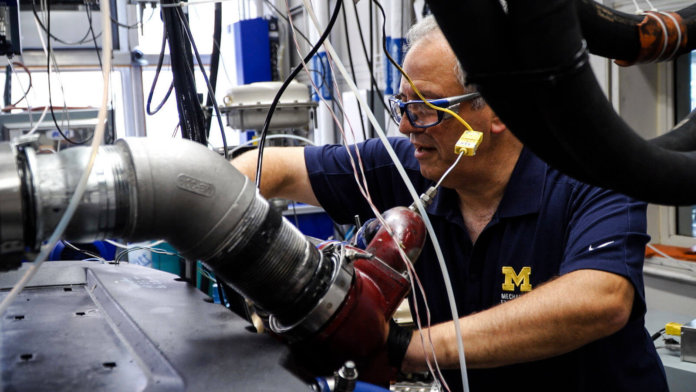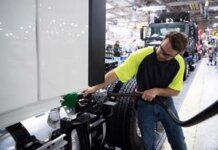
University of Michigan and Penn State University researchers are working on a three-year project to study how algae can be used as a biofuel source for diesel engines.
With $2 million in funding from the U.S. Department of Energy, the researchers will perform an end-to-end evaluation of how best to grow algae, transform it into a diesel fuel and maximize its performance during the combustion process, according to a U-M press release.
“It’s a project with big research questions,” says André Boehman, professor of mechanical engineering and director of U-M’s W.E. Lay Automotive Laboratory. “And it has the chance to do something that is very impactful – help us take a big step toward sustainability.”
“This is one of the first teams in the world to go all the way from designing sustainable biofuel feedstocks in outdoor ponds, to refining fuel so that it runs a diesel engine in a cleaner, more environmentally friendly way,” adds Bradley Cardinale, a biology professor and director of U-M’s Cooperative Institute for Great Lakes Research.
U-M’s work will include determining combinations that lead to optimal performance in areas such as fuel yield and stability. According to U-M, researchers have previously found that a combination of algal species performs better than any single species, capitalizing on the individual strengths of each strain.
“We’re not trying to fight against nature by designing one genetically superior strain of algae that can optimize all desired properties,” Cardinale explains. “We’re using the principles of ecological engineering to design a more comprehensive set of multi-species algal feedstocks that optimize several desired properties of algal biofuels at once.
“The first principle of ecological engineering is that no single species can be good at everything. If we can simply find those species with the variety of desired properties, we could design tailor-made biofuels that optimize multiple properties simultaneously.”
From there, the teams will investigate how the resulting compounds can best be turned into biocrude synthetic fuel. The biofuels will be tested in a light-duty vehicle engine, and once an optimal algae combination is determined, they will be tested in a Volvo truck engine.
U-M’s research team uses an emerging technology called hydrothermal liquefaction to extract oil from the algae. It’s a process that simulates the pressures and temperatures that generate oil underground, says U-M.
In addition to Boehman and Cardinale, the research team also includes Levi Thompson, a former U-M professor of chemical engineering who is now dean of engineering at the University of Delaware. More information on the project can be found here.






